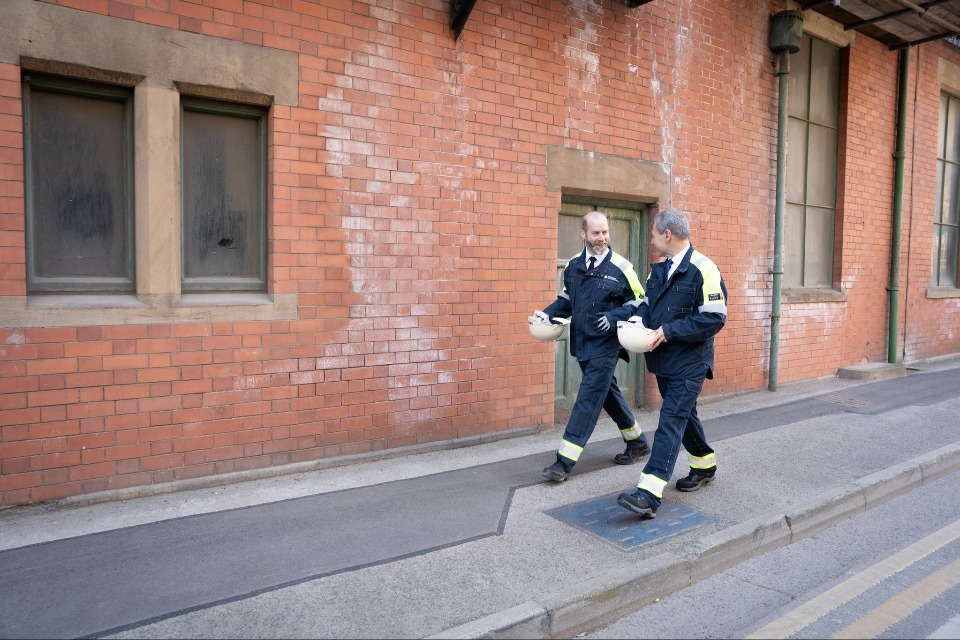- Government invites businesses to shape future steel trade protections and strengthen the UK’s critical supply chains.
- Key step in ensuring continued protection for the UK steel industry—building on the recent deal with the US to lift steel tariffs.
- Follows a series of government actions under the Plan for Change to defend UK steel, protect jobs and secure major sites like Port Talbot and Scunthorpe.
Steel producers, consumers, and unions will shape the UK’s future trade approach for steel, as Ministers seek robust long-term protections for the industry.
Safeguard measures are put in place temporarily to address sudden import surges and help industry adapt to new trading environments, however the challenges now facing the steel industry demand longer-term solutions.
The current UK steel safeguard measure ends in June 2026 and cannot be extended. The views from industry will help shape new future-ready trade measures that will protect UK businesses and jobs right across the country.
Business and Trade Secretary Jonathan Reynolds said
We know this is a tough time for steel producers which is why this Government is using every tool available to ensure the long-term success of our vital steel industry, protect jobs and deliver on our Plan for Change.
Thanks to our deal with the United States, all Section 232 tariffs on UK steel will be removed—while producers in other countries still face tariffs of up to 50%. But we’re not stopping there.
We will not sit by idly while cheap imports threaten to undercut UK industry, so we are inviting industry to shape the next phase of our trade defences so we can provide robust support and ensure a fair and competitive market.
The six-week Call for Evidence comes in addition to further government action to support industry amid global challenges. This includes securing a trade deal with the US to remove tariffs on steel products and protect jobs. It also includes announcing the upcoming steel strategy, which will establish a long-term vision for the sector and help build resilient supply chains. These efforts follow the launch of both the Trade and Industrial Strategy, which set out broader plans to support key industries, including steel.
This Call for Evidence is a key step in the Government’s wider commitment to rebuilding the steel sector, alongside decisive interventions such as the £500 million grant securing the transformation of Port Talbot steelworks, the £2.5 billion investment pledged to rebuild the sector, the action taken to safeguard British Steel’s blast furnaces at Scunthorpe, and the forthcoming Steel Strategy.
UK Steel Director General Gareth Stace said
It is welcome news that the Government is developing a new steel trade defence mechanism.
With growing global steel overcapacity and rising trade diversion, Government must deliver a new trade defence system to provide industry certainty before steel safeguards expire in June 2026.
UK Steel looks forward to working with Government to design an effective framework that will help to level the playing field on international trade and provide the market stability needed to draw investment in the UK steel sector.
Trade protections are a vital bastion for our steel industry in the face of global overcapacity, rising protectionism and unfair trade. They provide essential security, and safeguard thousands of jobs across the UK steel industry and its extensive supply chains.
We welcome the UK Government’s early engagement with the sector to shape our future steel protections and ensure that a cliff-edge scenario next year is prevented.
This government has demonstrated its steadfast support for our steel industry, and we will continue to work with them to secure the long-term future of the sector.
Notes to editors
- The Call for Evidence opens today and will run for six weeks, inviting stakeholders across the UK steel supply chain to submit feedback that will shape future trade measures.
- For more details and to submit evidence, visit GOV.UK.
- The UK’s steel safeguard measure is set to expire in June 2026 because it’s a temporary measure providing domestic industries with time to adjust to changing market conditions. These measures are meant to be in place for a limited time to allow industries to adapt to the influx of imports. WTO rules don’t allow for indefinite extensions of safeguard measures.

